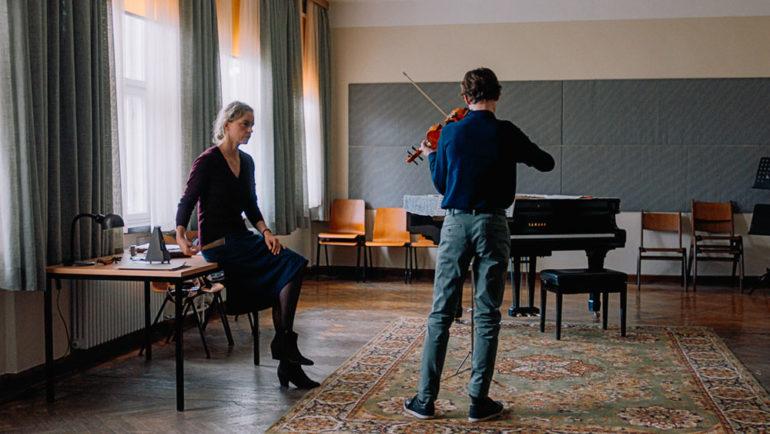German Cinema Is Varied, But Is It Too Risk Averse?
By Leo Barraclough
LOS ANGELES (Variety.com) – One of the strengths of German cinema is its diversity, says Simone Baumann, managing director of the national film promotion agency German Films.
As well as the three films at Toronto directed by female German helmers, there was also German filmmaker Thomas Heise’s documentary film essay “Heimat Is a Space in Time.” Then there were the many German-funded films directed by non-Germans, including “My Zoe,” by France’s Julie Delpy, and “Guns Akimbo,” by New Zealander Jason Lei Howden.
The country is one of the world’s leading coproduction nations, which was much in evidence in Toronto – with 30 in the festival, including coproductions such as U.S. helmer Terrence Malick’s “A Hidden Life,” Swede Roy Andersson’s “About Endlessness,” and “Proxima,” by France’s Alice Winocour.
It is hard to make generalization about German cinema, a point the filmmakers make themselves. Since the heyday of the Berlin School, which included helmers like Christian Petzold and Angela Schanelec, at the start of the century, no significant New Wave or film movement has emerged on the German scene.
Nora Fingscheidt, the director of Germany’s Oscar entry, “System Crasher,” points to the distinctiveness of a director like Schanelec, whose latest film “I Was at Home, But…” won the Berlinale’s directing prize and now plays in Toronto. Fingscheidt says that her own influences lie outside Germany, including British films like Alan Clarke’s “Made in Britain,” starring Tim Roth, and Clio Barnard’s “The Selfish Giant.” “I have this love-hate relationship with German cinema,” she says. “Sometimes it is really boring and then once in a while you find something really great and radical. The system is not made for that kind of cinema, but sometimes it happens,” she says, giving Maren Ade’s “The Forest for the Trees” as an example.
Director Ina Weisse, whose film “The Audition” played in Toronto, says: “I believe [German cinema] could take greater risks, and not rely so much on what is safe. Cinema is not as important in German society as it is in France, for example. The role that cinema plays in France is taken by theater or concerts in Germany. We learn about music and drama [for the stage] at school, but not film history.”
Some German filmmakers complain that German cinema isn’t radical enough and the local film business is risk averse. One reason for that is the conservative influence on filmmaking of the broadcasters, exerted through the regional film funds to whose coffers they contribute, and through their own film investment and acquisitions policy. “Sometimes that doesn’t lead to very radical forms of visual style,” Fingscheidt says.
There are exceptions. Fingscheidt felt “blessed” when it came to her experience with public broadcaster ZDF, who “understood the different creative approach” she had adopted on a film that “wasn’t commercial at all.”
For artistically inclined or experimental German filmmakers sometimes the only way to make their films is through international coproductions and regional funding, and, often, by working on very low budgets.
Schanelec says there is little support in Germany for her form of arthouse cinema, and what is seen by the film business as constituting “cinema” has become far too narrow, excluding alternative or experimental forms of filmmaking.
Her film received just Euros 400,000 ($441,000) in funding and was “obviously underfunded,” she says. Applications for funding were either rejected or the amount approved was lower than requested. Despite the difficulties in finding financial backing, she says that the award at Berlin gave her confidence that there is an appreciative audience for her work. “I was really happy,” she says.
Director Katrin Gebbe, whose film “Pelican Blood” was in Toronto, says many of her contemporaries have abandoned cinema altogether, and are working on TV series instead, where the opportunities are greater. “With the high-profile TV series especially, young, brave and visionary filmmakers are now getting their chance. They enjoy higher budgets and more creative freedom,” she says.

